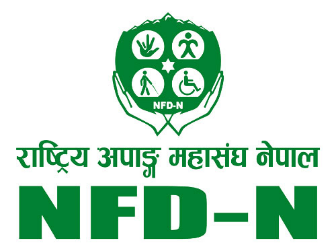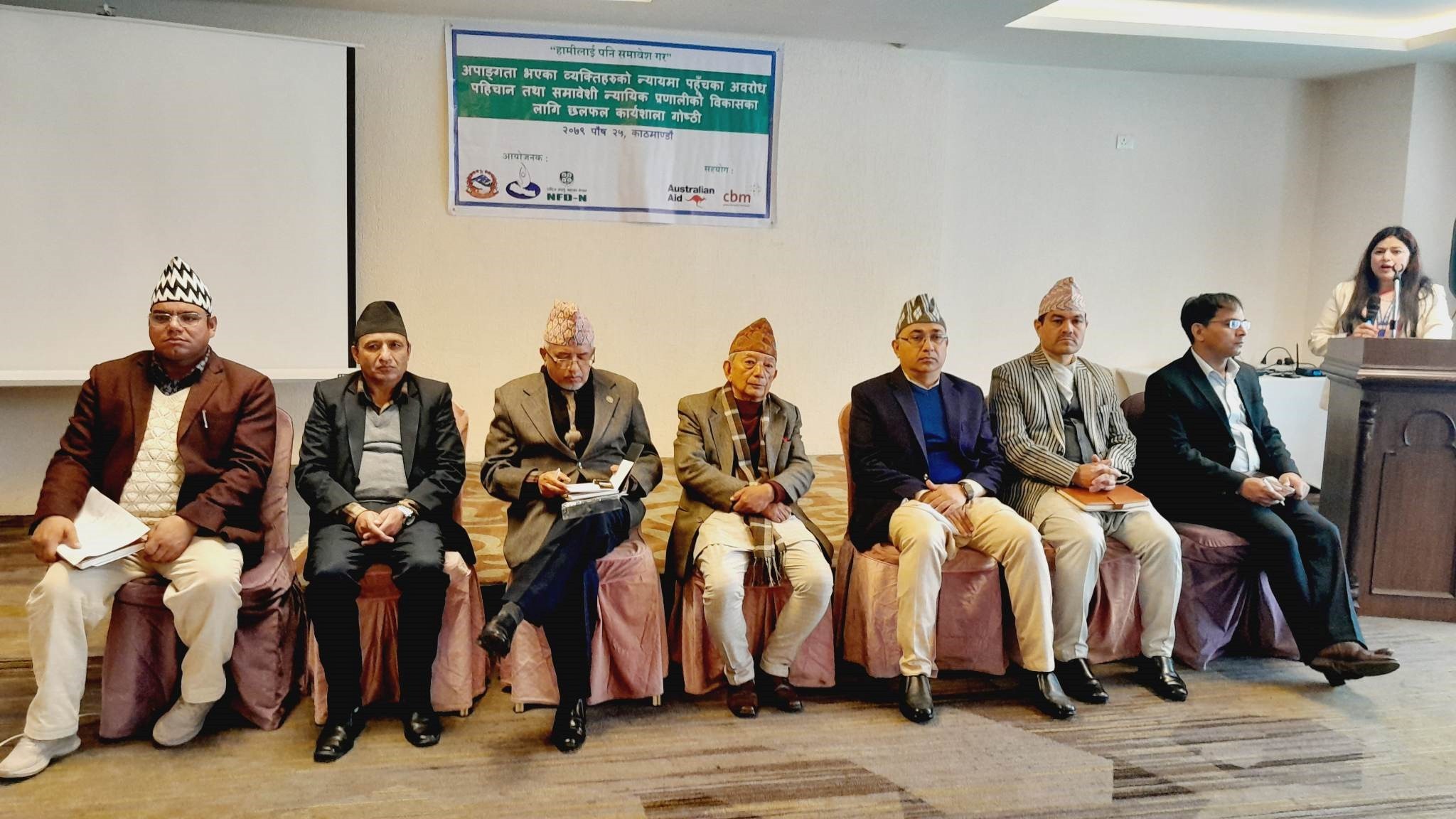A Workshop on the inclusive justice system.
NFDN convened workshops on Inclusive Justice System in all seven provinces and Kathmandu with special focus on addressing the gaps and barriers that prevent the access of persons with disabilities to the justice system. The workshops were organized under the project “Include Us” supported by CBM global with the objective to sensitize the province, district and local level authorities of justice on the issues of persons with disabilities and to share the findings and recommendations of the study, recently completed by NFDN, on the situation of persons with disabilities on access to justice in the close collaboration with National Human Rights Commission.
The research was conducted basically to identify the barriers that persons with disabilities and women and children with disabilities often face in their lifespan and prevented them from having equal access to Justice. Strategically, the main aim of the study was to inform the policymakers and justice system about the situation and influence to bring changes in policy, action and behavior of government through advocacy, awareness, and activism.
After the completion of the research NFDN in collaboration with National Human Rights Commission, organized these workshops in the headquarters of all seven provinces and in Kathmandu. In the workshops, the situation of persons with disabilities in access to justice, barriers of access to justice, possible solutions, and roles of police, district attorney office, courts, local justice committee and human rights commission were discussed. Similarly, during the workshops, major legal provisions along with the provisions of CRPD and findings of study were also shared and discussed.
The Contents were mainly divided into 6 sessions where NFDN Led the session related to situation analysis, basic requirements for access to justice for persons with disabilities, accessibility requirements, addressing the diversity of disabilities, and the diversity of justice administration. Similarly, National Human Rights Commission led the session related to the finding of the research and efforts made by NHRC for access to justice. Likewise, on behalf of the Justice of the High Court facilitated the session related to the role of stakeholders in the judicial sector in the implementation of (UNCRPD), other sectoral legal provisions, making the justice system accessible, and the roles of courts. The Justice of the High Court also shared the provisions mentioned in Disability Rights Act 2074 and regulations 2077. Each session was followed by a question and answer session in which the participants actively participated.
Altogether the workshops have 158 participants from the Supreme Court, High Courts, District Courts, District Police Offices, Province Police Offices, District Administration Offices, District Attorney Offices, District Traffic Police Offices, One Stop Crisis Management (OCMC), province offices of National Human Rights Commission, The Deputy Chief, and Legal Officer of selected Municipalities, quasi-judicial committee. Out of 158 participants, 121 were male and 37 were female participants.


